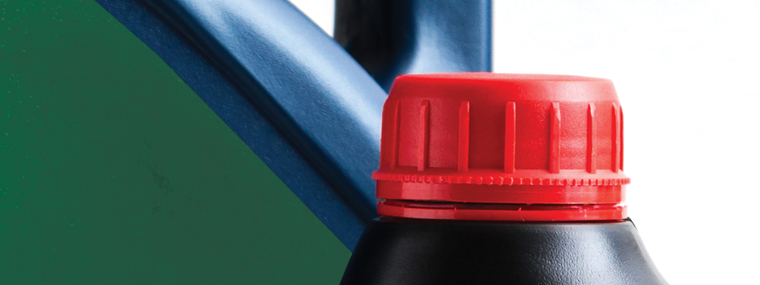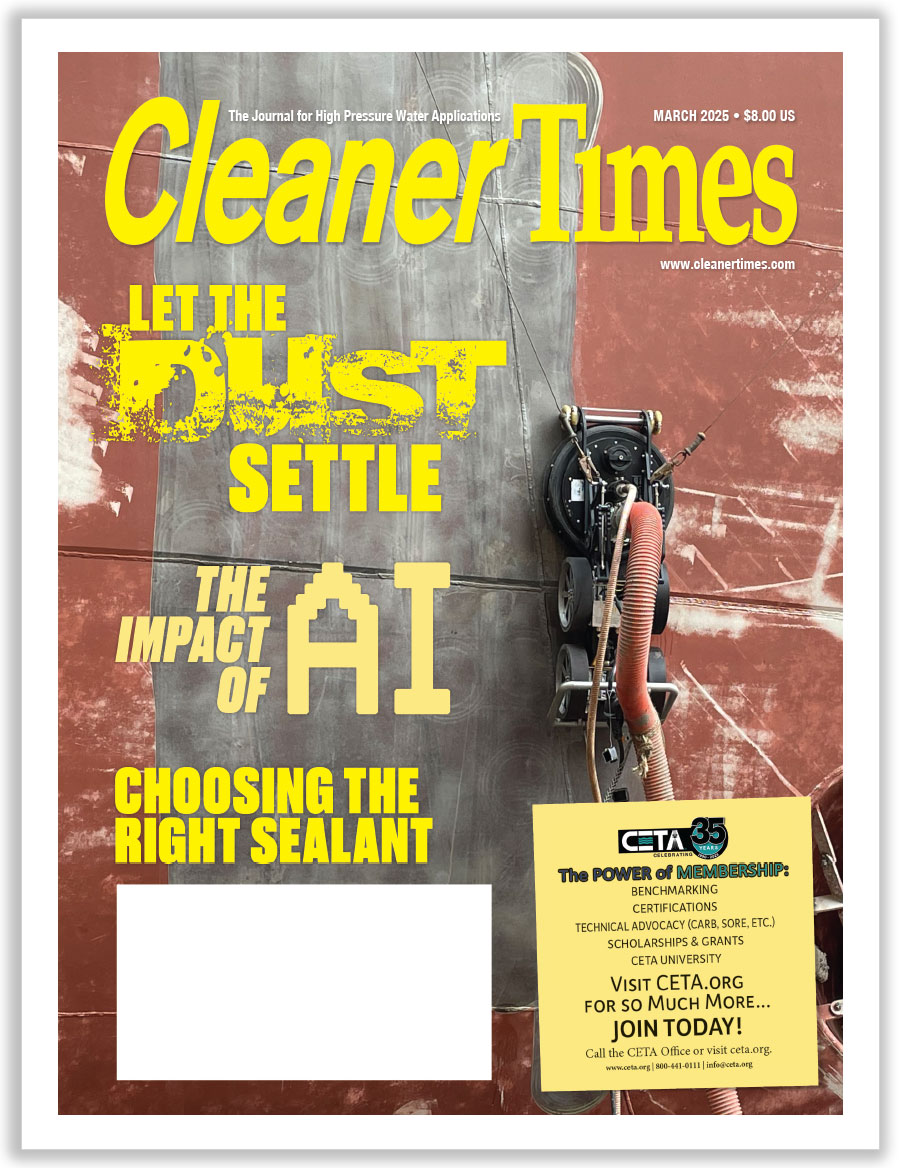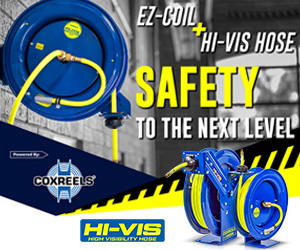
Evaluating the Benefits of Private Labeling
By Diane M. Calabrese / Published May 2020

Make it yours? Private labeling offers distributors, suppliers, and wholesalers the opportunity to do just that. There are decided advantages. First, by private labeling, a distributor can capture the glow from an excellent product.
“The ability to build awareness of a company in the industry and marketplace through a product or brand is a big plus,” explains Linda Chambers, Brand and Sales Manager at Georgia Chemical Equipment in Norcross, GA. “As the product or products become better known, the company that is behind that brand gets more recognition as well.”
Manufacturers who form private labeling alliances also gain. They sell more. A manufacturer’s decision to form private-labeling agreements is made in part because it enhances the bottom line.
Distributors who sell private-label products pick up revenue opportunities. A popular product helps drive information seekers to websites.
“The amount of search engine optimization (SEO) that is gained through social media for the company as many people talk about the brand online is one of the many ‘quiet’ advantages of private labeling,” says Chambers. It is, in other words, an effective and consultant-free search engine optimization strategy.
For distributors who are considering their first private labeling venture, Chambers recommends working with an experienced and helpful manufacturer. “ITD is a great company that consults and does private labeling for chemicals,” she says, giving us one example.
Branding gives a distributor latitude to tailor advertising and other outreach to prospective customers. The same pressure washer may be used quite differently on a day-to-day basis in densely populated mid-town Manhattan and rural dairy country in Wisconsin.
“Private labeling allows the dealer to sell their brand specifically,” explains Karl Loeffelholz, the dealer division manager at Mi-T-M Corporation in Peosta, IA. The branding brings in buyers who appreciate the value of getting an entire package of product and service.
“Offering their brand is much more than putting on a decal,” says Loeffelholz. “It’s about their services and commitment to the customer, which continue to drive the customers directly back to them.”
The advantages that accrue to the distributor mount as a private labeled item increases in popularity. “Everything the distributor advertises, displays, or tries to create in sales gets sent directly back to them,” says Loeffelholz.
“Creating your own brand seems to be pretty much on top of all marketing campaigns throughout companies,” says Loeffelholz. “By private labeling, you are creating that very effect.”
Manufacturers aiming to build market share are generally receptive to discussions about private labeling. Distributors should weigh the benefits to their own businesses and then make approaches if their interest warrants.
How much can a manufacturer gain by entering private label agreements? If reports from other industries are analogous, a considerable amount. The Small Business Administration reports on a manufacturer of flour-based mixes that registers 40 percent of its sales via private-labelled products. (See www.sba.gov/offices/district/ny/syracuse/success-stories/third-generation-entrepreneur-family-and-business-are-perfect-mix.)
In some industries such as cosmetics, food, and over-the-counter pharmaceuticals, private labeling occurs with a bit of a twist. For instance, a well-known manufacturer of hand lotion may also make a generic that sells for less under a bargain-brand appellation.
We could list plusses and minuses of private labeling, but we prefer plusses and caveats. Most of the caution is tied to one factor: sorting out liability. (The liability factor has been magnified some by California Proposition 65 requirements.) We treat plusses and cautions in turn below.
Plusses
With a coordinated private labeling effort, a distributor can bring uniformity to products. For instance, the ancillaries that tie to the pressure washer and pressure washer itself can all be given a single name.
“Aster’s Pressure Washer” can be offered with Aster’s wands and guns and Aster’s line of chemicals. (Aster is the name of a fictional company, an exemplar moniker appropriated from the name of one of the writer’s dogs.)
The more products a company has that carry its name, the more likely it is any search for a specific product will draw a customer to a website or a door. There’s serendipity in the mind of a would-be buyer who begins to study the specs on Aster’s pressure washer and realizes there is an entire line of chemicals with the same brand name and suited to use with it.
By selling a customer a branded package that includes chemicals, ancillaries, and pressure washers, as well as service, a distributor may be able to offer a price that makes the package very attractive. That will further increase sales.
Just the consolidation of items in one place under one brand is a time saver for customers. Expedited sales and service satisfies busy contractors.
Compounding chemicals is a necessary and complex process as well as a heavily regulated one. A distributor who has a private labeling agreement with a manufacturer can generally make requests for specific formulations.
A distributor may believe that a specific scent or color added to a formulation will meet receptive buyers in a certain geographic area. The distributor can request that formulation to brand and sell.
Working out a private label agreement with a vendor takes positive interaction. The trust that exists on each side of the arrangement makes business-to-business ties stronger, a benefit to the businesses and the entire industry.
Reciprocal confidence girds private label agreements. The distributor knows the manufacturer will provide a well-made and fully documented product, whether machine or chemical. The manufacturer is assured the distributor will sell the product as it was received without alteration.
Cautions
Selling products as received under private labeling agreements protects the distributor. A distributor who wants even a small adjustment in a product should ask the manufacturer to make it. The reason is due to liability.
Under the many federal guidelines that govern compounding, use of chemicals, and sourcing of device components, the manufacturer generally bears the liability. If a private labeling distributor (or supplier or wholesaler) does not modify the product, the distributor is generally indemnified.
Still, it’s 2020, and there are two big qualifiers. One, lawyers now routinely name anyone who touched a product in any way—if only to put it on a shelf—in lawsuits. Many of the named are usually tossed out by judges, but anything can happen in some courts.
California’s Prop 65 is the second concern. A distributor using private labeling may bear responsibility for providing warnings. The CalEPA Office of Environmental Health Hazard Assessment (OEHHA) clarifies and reclarifies at the official Prop 65 website, yet much is open to interpretation.
Here’s how it stands as we write: If a Prop 65 warning is required, the manufacturer must supply a warning on the product label or labeling; or, the manufacturer must provide notice and warning materials to the seller (distributor, in this case) and obtain written acknowledgment of their receipt. (See www.p65warnings.ca.gov/frequently-asked-questions-businesses.)
The most prudent course for a distributor negotiating a private label with a manufacturer is to contract with the manufacturer to apply any required Prop 65 warnings in addition to the private label. The OEHHA points out that much is open to interpretation regarding the procedure.
Just be sure to err on the side of caution. If a distributor has a sense that a Prop 65 label is required and has not been notified of it by the manufacturer, recheck with the manufacturer.
‘Make It Mine’
Before saying those words—with due attribution to Jule Styne and Sammy Cahn who wrote them in the song, “Three Coins in a Fountain,” and a nod to resumption of normalcy in Rome at the Trevi Fountain and beyond—review a private agreement as the legal document it is.





